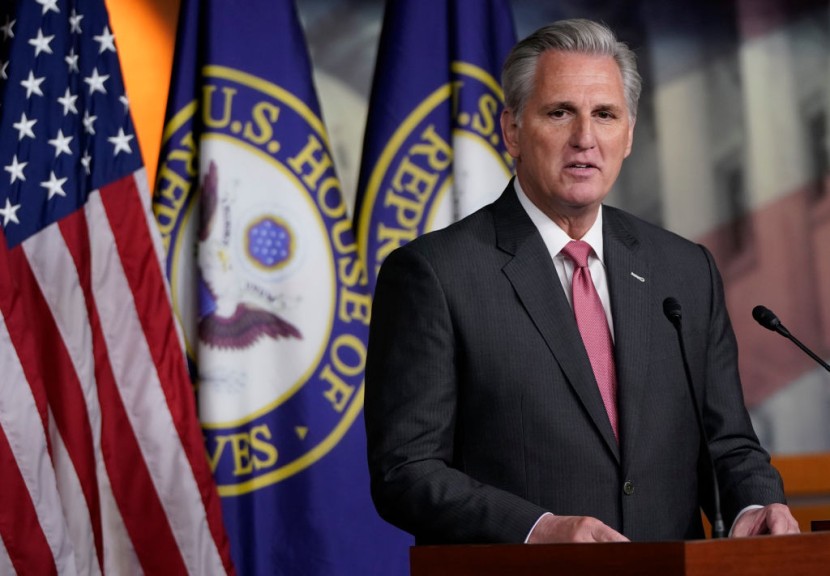
WASHINGTON, DC - JANUARY 09: House Minority Leader Kevin McCarthy (R-CA) answers questions during a press conference at the U.S. Capitol on January 09, 2020 in Washington, DC. McCarthy answered a range of questions related primarily to the House articles of impeachment being sent to the U.S. Senate.
Speaker Kevin McCarthy's debt limit bill barely cleared the House (217 to 215) on Wednesday, April 26, with Democrats voting as a bloc to reject it.
However, the bill's passage might have worsened a deadlock, making it more difficult to avoid a catastrophic US default.
Increased Pointing of Fingers and Ongoing Deadlock
In a report by NBC News, the Democratic-controlled Senate has vowed to discard McCarthy's plan and has rejected any attempt at compromise on the nation's debt obligations. President Joe Biden has said he would veto the bill.
Republicans in the House have enough votes to introduce legislation that would reduce spending and reverse major sections of Biden's plan, so they are less likely to support a debt ceiling increase with no conditions attached.
McCarthy, a Republican from California, placed the onus on Biden on Wednesday, saying, "Now he should sit down and negotiate." He added, "We are the only party to take fiscal action ... that would lift the debt limit so we wouldn't have economic damage."
The White House, meanwhile, maintains that it would not negotiate anything other than a clean debt limit bill with no policy riders. Biden's advisors believe that negotiating with the Republicans to avoid using the fear of default as a bargaining tool is more effective than arguing over whether or not to pay the country's obligations.
"Congressional Republicans must act immediately and without conditions to avoid default and ensure that the full faith and credit of the United States is not put at risk. That is their job," White House press secretary Karine Jean-Pierre said.
Reiterating her opposition to the measure, she criticized the spending limitations, saying they would reduce funds for healthcare, education, Meals on Wheels, and public safety.
The Treasury Department has warned that if Congress fails to act by June 5, the country might face economic disaster. The increased pointing of fingers and continuing impasse have caused widespread worry on Capitol Hill.
What Is Debt Limit and Default?
According to the New York Times, the debt limit is the maximum amount of money the federal government may borrow to pay for its debts and other commitments. The US borrows vast amounts to pay its obligations because it generates financial deficits. That includes social safety net services, loan interest, and military pay.
Congress raised the borrowing maximum to $31 trillion in late 2021 after a lengthy dispute.
The debt ceiling issue sometimes leads legislators to advocate for budget cuts, but raising it just permits the US to pay its debts.
Notably, a default occurs when a person or corporation fails to pay an obligation. So if the US were to default, it would cease making payments to the holders of US Treasury bonds, BBC reported.
© 2025 HNGN, All rights reserved. Do not reproduce without permission.








